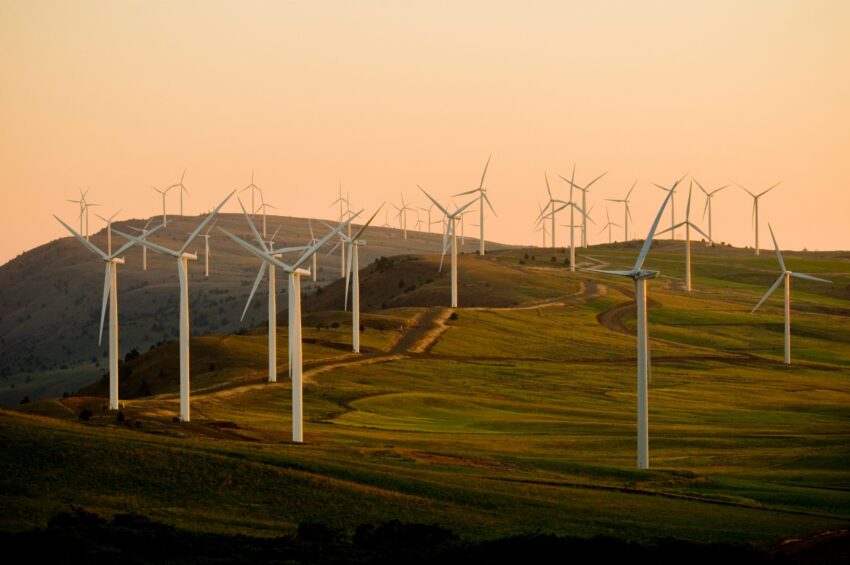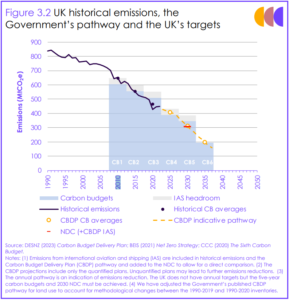AG INSIGHT | 16/05/2024
Holding our nerve on the importance of carbon budgets

It’s been an incredibly tough few years for many individuals and businesses in the UK. One could be tempted to think – as has been suggested in some quarters – that softening our national emissions reduction requirements by “banking” recent overachievement is an appropriate response to the situation. I disagree.
The UK’s carbon budgets are legally-binding five-year emissions allocations which the Government sets for itself, taking account of advice from the Climate Change Committee. The point of carbon budgets, which started in 2008, is to chart a path towards delivering the final target of net zero by 2050, avoiding an undeliverable cliff edge at the end.
Reaching net zero in 2050 is necessary for both environmental and economic reasons. Slowing progress will have significant consequences: not only will severe climatic instability have major implications for our shared prosperity, but inaction will also see the UK lose ground in the global race for low-carbon growth. International competition for green investment is continuing to rise, and without certainty the UK will put its leadership position on climate in jeopardy.
The good news is that the UK has made impressive progress so far in reducing emissions and therefore in achieving our first three carbon budgets, and the Third Carbon Budget (covering 2018-22) looks likely to have been overachieved by 15%. Section 17 of the 2008 Climate Change Act allows the Secretary of State to “bank” such a surplus, in full or in part. Before doing so, the Secretary of State must take into account advice from the Climate Change Committee, and must consult the devolved administrations. A decision on whether to use this power must be taken by no later than 31st May in the second year after the earlier budget period ends (so, in this case, 31st May 2024) – which is also the date on which an assessment is made of whether the relevant budget has been met.
Accordingly, the Minister of State for Energy Security and Net Zero wrote to the Climate Change Committee in early 2024 requesting advice on whether to bank the recent overachievement. The Committee’s response advised strongly against doing so, on a number of grounds. A crucial element of this advice was that the rest of the UK’s path to net zero is going to be far more challenging than our progress so far, requiring focus and effort from every sector of the economy, especially those with historical underdelivery (transport, buildings and land use).
Delivery will rely on a close partnership between government and business, with increasing levels of citizen engagement. This means having a shared understanding of the changes that are needed and how they will be achieved, and then attracting substantial investment into the UK economy. With a strong direction of travel, there is a huge amount of green finance waiting to be unlocked – but the holders of the keys need certainty that change will be consistent and long term.
Banking our lockdown-related extra emissions reductions and therefore reducing effort in the next three years sends exactly the wrong signal, and would backfire, making subsequent carbon budgets harder to achieve and requiring a less stable approach to driving down emissions. So, rather than banking extra reductions, let’s make confident decisions that keep businesses engaged and drive progress towards a sustainable future.




